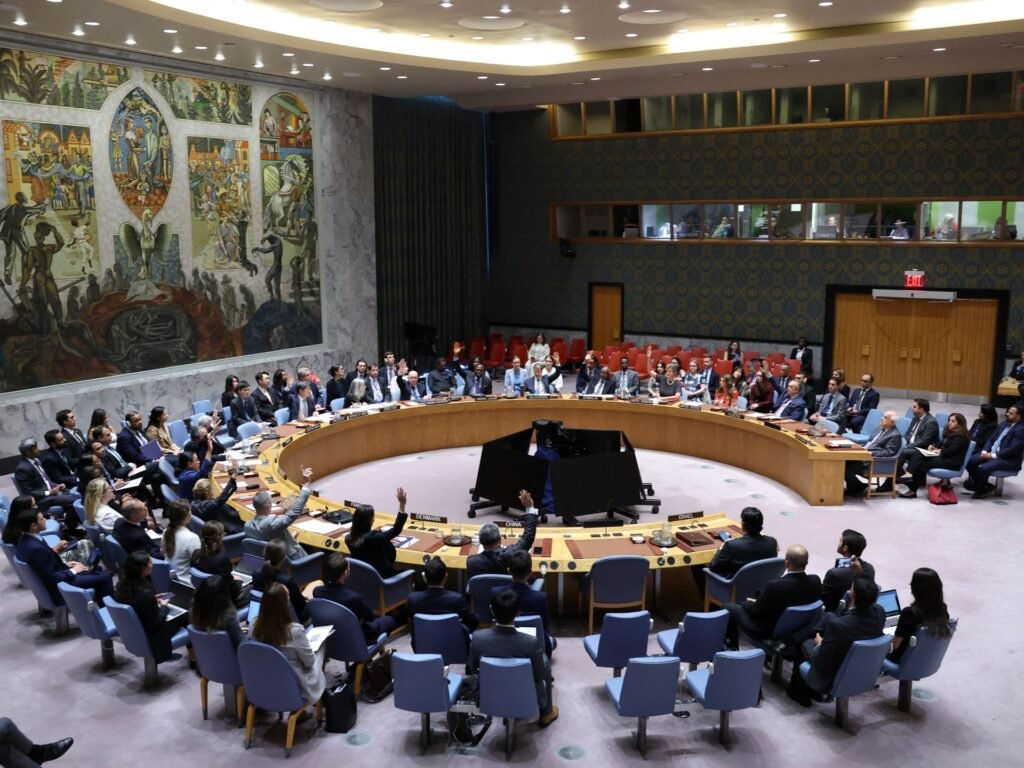Security Council votes against delaying reimposition of UN sanctions on Iran over its nuclear programme.
The United Nations Security Council has voted against a resolution drafted by Russia and China to delay by six months the reimposition of sanctions on Iran.
In a 4-9 vote, with two abstentions, world leaders on Friday opted to reimpose sanctions owing to Iran’s nuclear programme. The sanctions are set to snap back as of 8pm in New York on Saturday (00:00 GMT on Sunday).
Russian and Chinese diplomats pushed for the Security Council to delay the return of sanctions, but they failed to sway enough of the other members.
France, Germany, and the United Kingdom, also known as the E3, have accused Tehran of violating the 2015 Joint Comprehensive Plan of Action (JCPOA) deal geared to prevent Iran from building nuclear weapons. Donald Trump unilaterally withdrew from the JCPOA in 2018.
Iran has repeatedly denied pursuing nuclear weapons, but has affirmed its right to peacefully pursue nuclear energy.
The JCPOA was signed between Iran and the world powers, including the US, in a deal that lifted sanctions in exchange for a cap on Iranian nuclear ambitions.
Iran’s Foreign Minister Abbas Araghchi condemned the imminent reimposition of UN sanctions over its nuclear programme as “legally void” on Friday.
Araghchi told the UN Security Council that European nations’ “pursuit of the so-called ‘snapback’ is clear and consistent — it is legally void, politically reckless and procedurally flawed.”
“The United States has betrayed diplomacy, but E3 has buried it,” he added.
“By ignoring facts, spreading false claims, misrepresenting Iran’s peaceful programme, and blocking diplomacy, they have actively and intently paved the way for a dangerous escalation.”
‘No further negotiations’
Russia’s deputy UN envoy, Dmitry Polyanskiy, told the chamber before the vote that Iran had done all it could to accommodate Europeans, but that Western powers had refused to compromise.
But Jerome Bonnafont, the permanent representative of France to the UN in New York, refuted that and said Iran had not taken any serious steps to avoid the renewal of sanctions.
Bonnafont added, however, that diplomacy should continue and that the reimposition of sanctions did not mean a negotiated settlement could not be reached later.
Reporting from the UN, media’s Diplomatic Editor James Bays said, “It doesn’t look like there is going to be further negotiation. We had the opportunity all week here in New York for negotiations.”
But Bays noted that Iran knew the resumption of sanctions was likely. “The supreme leader in Iran said that he didn’t think there was going to be progress and that snapback was likely … I don’t think there is much more effort going into this now in terms of negotiation.”
The snapback sanctions will be layered atop the already tough Western sanctions in place against Iran.
“What we are talking about here are all the international sanctions, all the UN sanctions that were in place before 2015.”
Regional tensions escalated in June, when Israel launched a 12-day war on Iran, with Israeli and US forces striking several nuclear facilities. The Israeli-US bombing came a day after the UN’s nuclear watchdog board ruled that Iran was not respecting international nuclear safeguards.
The UNSC voted last week not to permanently lift economic sanctions on Iran over its nuclear programme, setting Tehran up for a major economic blow it claimed was “politically biased”.
